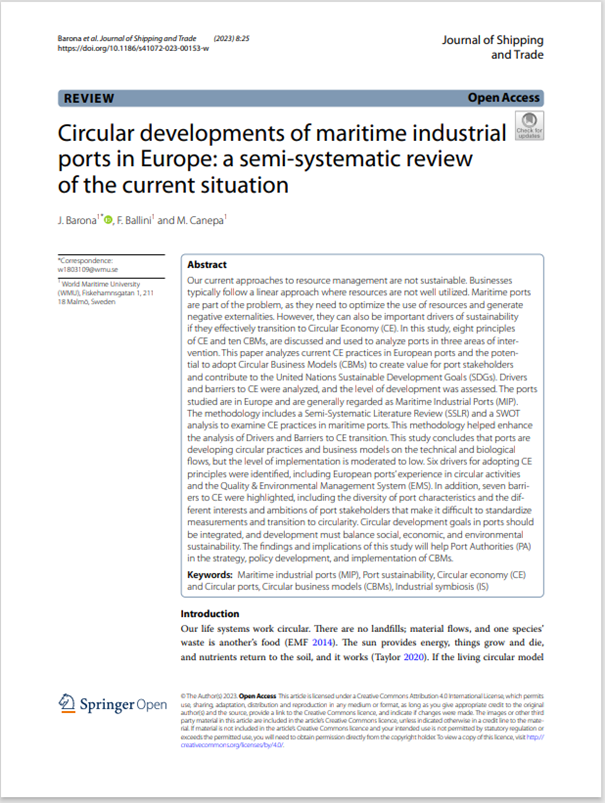Abstract
Our current approaches to resource management are not sustainable. Businesses typically follow a linear approach where resources are not well utilized. Maritime ports are part of the problem, as they need to optimize the use of resources and generate negative externalities. However, they can also be important drivers of sustainability if they effectively transition to Circular Economy (CE). In this study, eight principles of CE and ten CBMs, are discussed and used to analyze ports in three areas of intervention. This paper analyzes current CE practices in European ports and the potential to adopt Circular Business Models (CBMs) to create value for port stakeholders and contribute to the United Nations Sustainable Development Goals (SDGs). Drivers and barriers to CE were analyzed, and the level of development was assessed. The ports studied are in Europe and are generally regarded as Maritime Industrial Ports (MIP). The methodology includes a Semi-Systematic Literature Review (SSLR) and a SWOT analysis to examine CE practices in maritime ports. This methodology helped enhance the analysis of Drivers and Barriers to CE transition. This study concludes that ports are developing circular practices and business models on the technical and biological flows, but the level of implementation is moderated to low. Six drivers for adopting CE principles were identified, including European ports’ experience in circular activities and the Quality & Environmental Management System (EMS). In addition, seven barriers to CE were highlighted, including the diversity of port characteristics and the different interests and ambitions of port stakeholders that make it difficult to standardize measurements and transition to circularity. Circular development goals in ports should be integrated, and development must balance social, economic, and environmental sustainability. The findings and implications of this study will help Port Authorities (PA) in the strategy, policy development, and implementation of CBMs.
Keywords: Maritime industrial ports (MIP), Port sustainability, Circular economy (CE) and Circular ports, Circular business models (CBMs), Industrial symbiosis (IS)
Cite as: Barona, J., Ballini, F. & Canepa, M. Circular developments of maritime industrial ports in Europe: a semi-systematic review of the current situation. J. shipp. trd. 8, 25 (2023). https://doi.org/10.1186/s41072-023-00153-w
